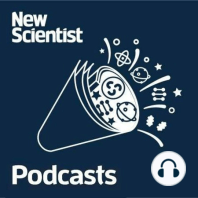32 min listen

Weekly: Biggest climate summit since Paris; thanking dirt for all life on Earth; what if another star flew past our solar system?
Weekly: Biggest climate summit since Paris; thanking dirt for all life on Earth; what if another star flew past our solar system?
ratings:
Length:
22 minutes
Released:
Dec 1, 2023
Format:
Podcast episode
Description
#226This year’s COP28 could be the most important climate summit since the Paris Agreement in 2015. After opening in Dubai on Thursday, this will be the first time countries will formally take stock of climate change since agreeing to limit global warming to 1.5 degrees Celsius. While we can expect world leaders to make some major commitments regarding renewable energy, sceptics are concerned the location of the summit will mean that fossil fuel interests end up disproportionately shaping the meeting.You may want to thank dirt for the evolution of life on Earth and the incredible biodiversity on the planet. We now know from computer simulations that a spike in nutrient-rich soil led to a boom in marine biodiversity millions of years ago. And thanks to plate tectonics and continental drift, that soil built up on land too and was an essential ingredient to life as we know it.What would happen to our solar system if the Sun suddenly had some competition…like if a roaming star flew too close? Would it snatch one of our planets, disrupt their orbits or send Mercury hurling towards the Sun? As researchers have found out, these and many other frightening scenarios are all possible - but thankfully not that likely. Bottlenose dolphins can sense electric fields with tiny pits in their skin and could be using them to hunt or even navigate. This new finding puts them on par with sharks, who also have this superpower. Plus: How chinstrap penguins sleep 11 hours a day, but in thousands of 4-second micro-naps. AI predicts there could be more than 2 million different ways to make a crystal. And how to pour a cup of tea as quietly as possible.Hosts Timothy Revell and Christie Taylor discuss with guests James Dinneen, Jacob Aron, Leah Crane and Chen Ly. To read more about these stories, visit newscientist.com. Hosted on Acast. See acast.com/privacy for more information.
Released:
Dec 1, 2023
Format:
Podcast episode
Titles in the series (100)
#25: Coronavirus effects on children, and on other diseases; changing the way you sit could add years to your life; supercrops for a climate-changed world by New Scientist Podcasts